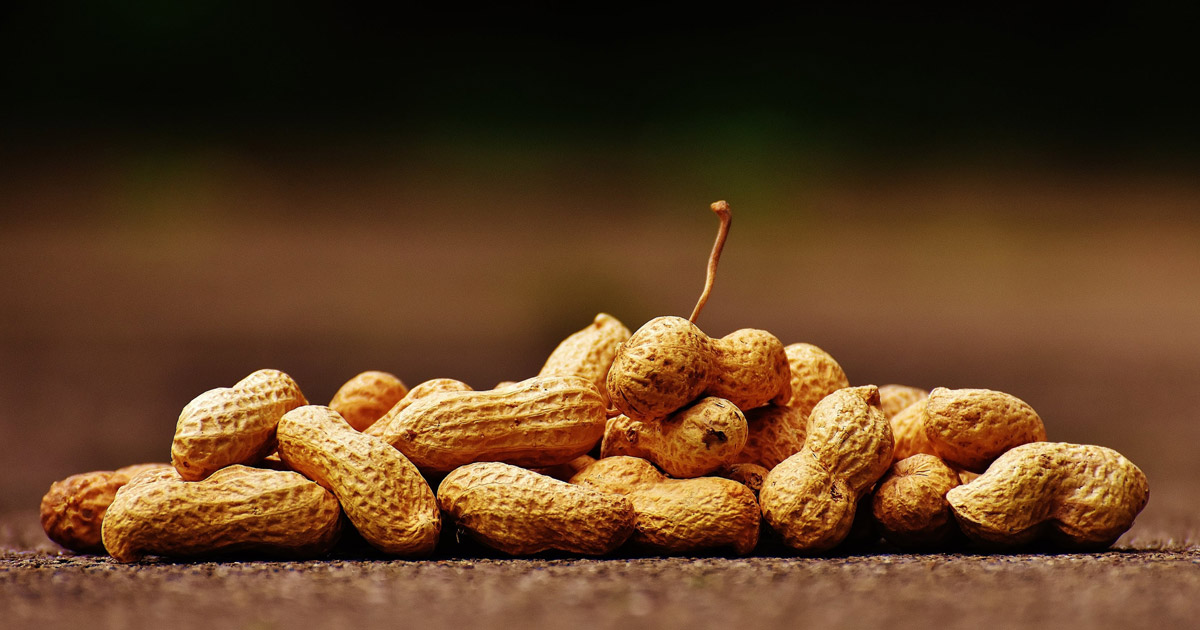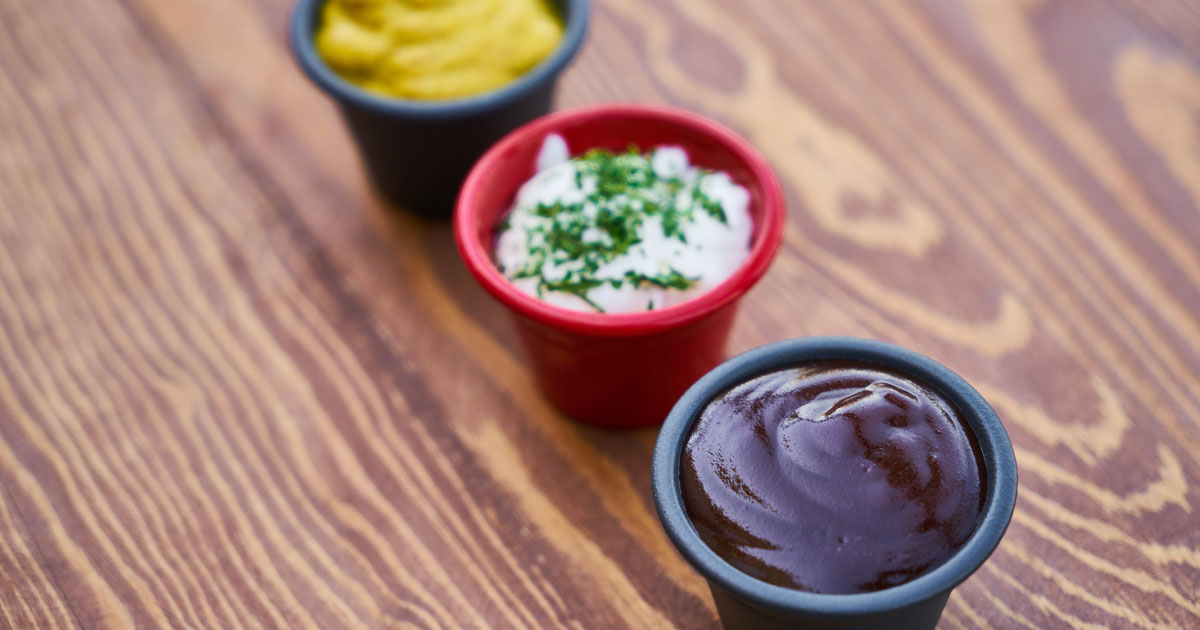Peanut butter (also known as peanut cream or peanut paste) consists mainly of ground peanuts. In addition, there's salt, sugar, and vegetable oil (mostly palm oil, rapeseed oil, or cottonseed oil). But is this really necessary? Is there no natural peanut butter without palm oil and free from other additives? To answer this question, we first need to understand why so many peanut butter products contain palm oil.
Why is Palm Oil in Peanut Butter?
Walking through the supermarket and looking at the ingredient lists of products, you quickly notice that in almost every other second product, there's palm oil. Whether it's pizza, cookies, chocolate, margarine, or cosmetic products like soaps, lotions, toothpaste, and laundry detergent – palm oil is not easily avoidable. It's also a major component in the ingredient list of most peanut butter products. But why is palm oil found in so many peanut butter products? Especially in nut spreads like peanut butter, hazelnut butter, or pecan butter, palm oil serves as a stabilizer – ensuring a smooth spreadability.
Palm Oil Critique – Harmful to the Environment and Health?
That palm oil is harmful to the environment is something you can read about in countless articles on the internet. The reason for the palm oil boom is both a blessing and a curse. Because palm oil is extremely inexpensive to produce, more and more producers are turning to the product, which mainly comes from Indonesia, Malaysia, and Thailand. Palm oil holds a market share of 30% and is the most widely used vegetable oil in the world. In just the year 2018, around 70 million tons were produced – and the trend is rising.
Due to its low production cost, the demand naturally rises as well. As a result, numerous rainforests are being cleared or burned in Indonesia. For orangutans, these rainforests represent their last remaining habitat. But even in other countries where forests are cleared, many unique animals lose their homes.
The global climate also suffers from the newly established palm plantations. Rainforests normally absorb tons of harmful carbon dioxide (CO2). When these forests are cleared or burned to make way for plantations, a significant amount of CO2 is released.
The numbers are alarming and deeply concerning. In just one hour, on the Indonesian island of Sumatra, rainforest the size of 88 soccer fields is burned or cleared. While you've been reading this text, about 3.5 soccer fields of rainforest have been cleared – on the island of Sumatra alone.
In addition to the environment, many small farmers are also suffering from the circumstances of palm oil production. They constantly have to adjust to global prices and therefore have no negotiating power.
Furthermore, palm oil is said to be harmful to personal health. Excessive consumption of palm oil can have a negative impact on blood lipid levels. This is due to the high content of saturated fatty acids present in palm oil. Equally concerning is the harmful LDL cholesterol, which, according to nutritionists' assessments, impairs insulin's effect in the body and thus contributes to a higher risk of diabetes. Excess saturated fats can also lead to artery narrowing, with potential consequences such as stroke and heart attack.
The processing of palm oil can also result in the formation of carcinogenic substances. When palm oil is heavily heated during production, 3-MCPD fatty acid esters and glycidol fatty acid esters are formed. The German Federal Institute for Risk Assessment (BfR) categorizes glycidol, which is released during digestion, as carcinogenic. Similarly, MCPD is strongly suspected to increase cancer risk. In animal studies, it caused tumors and damaged internal organs such as the liver and kidneys at certain doses. For this reason, minimizing intake of this substance is recommended.
Unprocessed palm oil, unlike industrially produced palm oil, is considered healthy in its original form – cold-pressed and unprocessed. Nonetheless, numerous rainforests are still cleared for it. By now, if you've read this text to this point, we've reached a size of almost 6 soccer fields, which have been cleared or burned on the island of Sumatra alone.
Peanut Butter Without Palm Oil – What Alternatives Are There?
At American Heritage, we place great importance on sustainable and high-quality products. That's why in our range, we exclusively offer peanut butter without palm oil. Our products are imported directly from the USA by selected suppliers who all avoid using palm oil. When choosing suitable suppliers, it was especially important for us to provide our customers with natural peanut butter that is fairly produced and is appealing in taste. We've achieved this excellently with peanut butter from Stonewall Kitchen, Georgia Grinders, and Koeze Company. It's also worth mentioning that all peanuts used by these companies to make peanut butter come from the USA.
Peanut Butter Without Sugar & Additives
With a growing focus on personal health, people are becoming more conscious of their diet and opting for more natural products. As a result, the demand for peanut butter without sugar and additive-free peanut butter is rising.
Every peanut butter in our range is made exclusively from ground peanuts and culinary or sea salt. No extra sugar is added, as is the case with many other peanut butter products. Preservative additives are also taboo in our natural peanut butter.
In summary, if you're looking for:
- Peanut butter without palm oil
- Peanut butter without sugar
- Peanut butter without additives
then you can confidently choose from our products – whether "creamy" or "crunchy".
Is Peanut Butter Healthy?
After discussing many negative aspects of palm oil, you might wonder whether peanut butter is healthy at all. The answer is relatively simple: yes! Peanut butter is a very good source of protein. Additionally, it contains plenty of fiber that keeps you full and aids digestion. It's an excellent source of potassium and, due to its high content of healthy fats and proteins, a real energy provider. Peanut butter also contains many minerals and vitamins. The peanut itself is rich in magnesium, potassium, zinc, arginine, vitamin B3, and vitamin E. At the same time, peanuts are low in sodium and cholesterol-free. Natural peanut butter can be enjoyed without guilt. However, it's advisable to watch the calorie intake. With around 650 kcal per 100 grams, peanut butter is a calorie bomb. But if you consume it in moderation, there's nothing to worry about.
Can Peanut Butter (Without Palm Oil) Go Bad?
If you only occasionally enjoy a delicious peanut butter sandwich and therefore don't need a lot of peanut butter, you might wonder if peanut butter can spoil.
Generally, due to its high fat content, peanut butter does not mold. However, it might sometimes happen that when using utensils for consuming peanut butter, they have come into contact with other foods. If the same utensils are used, tiny remnants of other foods can get into the peanut butter and lead to mold growth.
If the best-before date has passed, there's a possibility that the peanut butter might become rancid. This can be easily checked using the smell test. If the peanut butter smells rancid, you shouldn't eat it or use it for cooking.
Our tip: Pay attention to buying clean jars that are not dented or damaged!
How Long Does Peanut Butter Last?
Natural peanut butter, meaning peanut butter without palm oil and free of preservatives, generally has a very long shelf life. However, this also depends on storage. Natural peanut butter should be refrigerated after opening. Unopened, peanut butter can last around 3 months in the pantry, and after opening, it can last for about 6 months in the refrigerator.
In theory, peanut butter can also be frozen and thawed at a later time.
To achieve a smooth spreadable consistency even after refrigeration, we recommend taking the peanut butter out of the fridge about an hour before consumption.
By the way, for the peanut butter products we have in the American Heritage range, occasionally the oil separates from the peanut butter and settles on the surface. This is not an indication that the peanut butter is bad. Instead, it indicates the excellent quality of the peanut butter. Simply stir the peanut butter gently with a knife before use to mix the separated oil back in with the peanut butter.
What Peanut Butter Alternatives Are There?
For those who aren't big fans of peanut butter, there are also numerous alternatives available. Georgia Grinders, one of our selected suppliers, specializes in nut spreads and offers additional alternatives along with peanut butter:
All these products are imported directly from the USA and can be easily ordered from our online shop.
Summary: Peanut Butter Without Palm Oil
For those who want to do something good for themselves and the environment, switching to natural peanut butter is a wise choice. Flavor-wise, peanut butter products without sugar and other additives are the better alternative. When the ingredient list only contains ground peanuts and salt, the taste is significantly more authentic and intense.
A final thought to highlight the issue of palm oil: Do you recall the Indonesian island of Sumatra affected by heavy deforestation? While reading this article, rainforest equivalent to 10.5 soccer fields has been destroyed to make way for new palm oil plantations.




